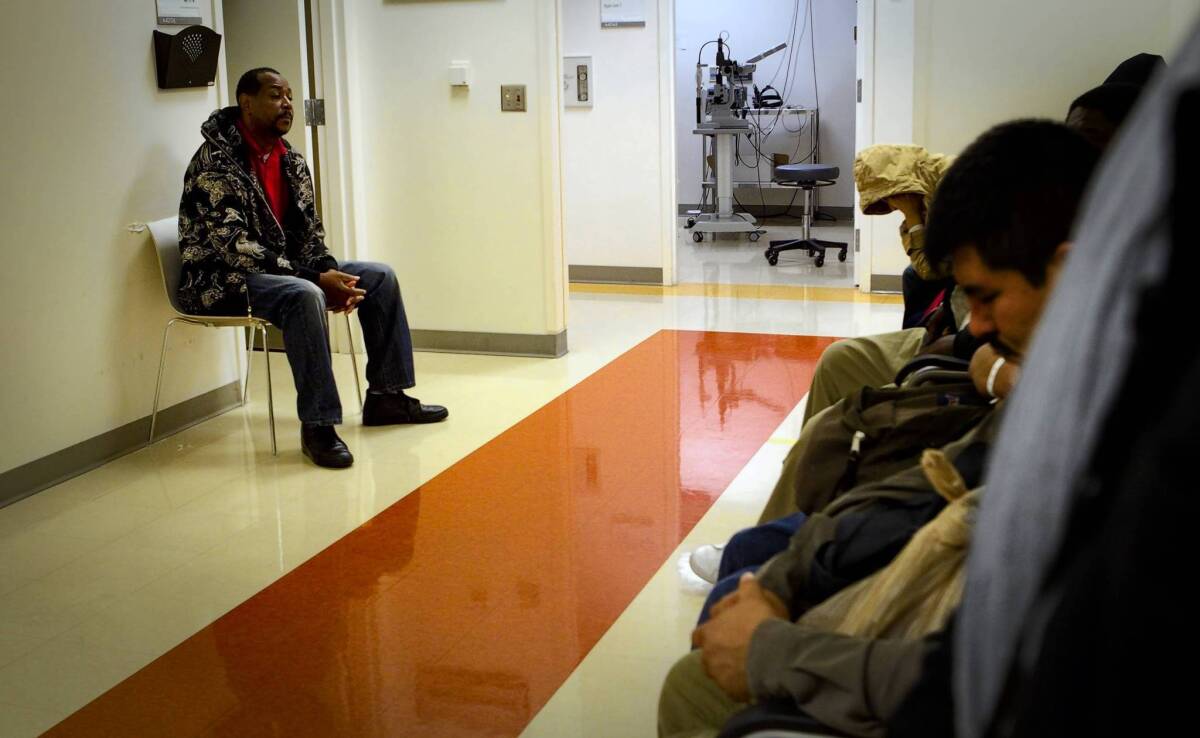Letters: Free healthcare is expensive

- Share via
Re “Doctor shortage slows reform,” Dec. 16
Last week The Times covered the 10% decrease in Medi-Cal payments and philanthropist David Geffen’s support for medical students, who, among those who take out loans, on average graduate with $170,000 in debt. Now, this article tells us that healthcare reform may worsen the doctor shortage problem as more patients seek specialized treatment.
Los Angeles has more immigrants who are ineligible for federal funds than any other U.S. county and is on target to lose the most in disproportionate share hospital funding — money from the federal government to compensate facilities that treat a high number of indigent patients. Yet government has turned a blind eye to the real issues affecting healthcare.
As immigrant Roy Lawrence, profiled in your article, literally becomes blind in front of our eyes because he can’t get cataract surgery, we ignore immigration, unnecessary war spending and our high-speed rail to nowhere. Free healthcare sure isn’t cheap.
Howard C. Mandel, MD
Los Angeles
The Times demonstrates the devastating consequences of reform financed by the illusion of cutting reimbursements to providers. Hundreds of billions of dollars in
cuts were promised by Congress and the White House, not by reducing medical care but by reducing payments to those who provide it.
With the vast expansion of Medicare and Medicaid (Medi-Cal), these providers will have even more incentive to flee the system and even their professions, leaving millions with a promised “right” to care that no longer exists.
Richard E. Ralston
Newport Beach
The writer is executive director of Americans for Free Choice in Medicine.
There is not a doctor shortage, there is a payment shortage that is a direct consequence of both government and insurance industry actions. Physicians, clinics, surgery centers and hospitals are paid less by the government than their services actually cost, and they cannot make up the difference by providing more care.
Health insurance for all may not actually yield healthcare for all.
Howard R. Krauss, MD
Los Angeles
ALSO:
Letters: The perils of lottery luck
Letters: Are stricter gun laws the answer?
More to Read
A cure for the common opinion
Get thought-provoking perspectives with our weekly newsletter.
You may occasionally receive promotional content from the Los Angeles Times.









